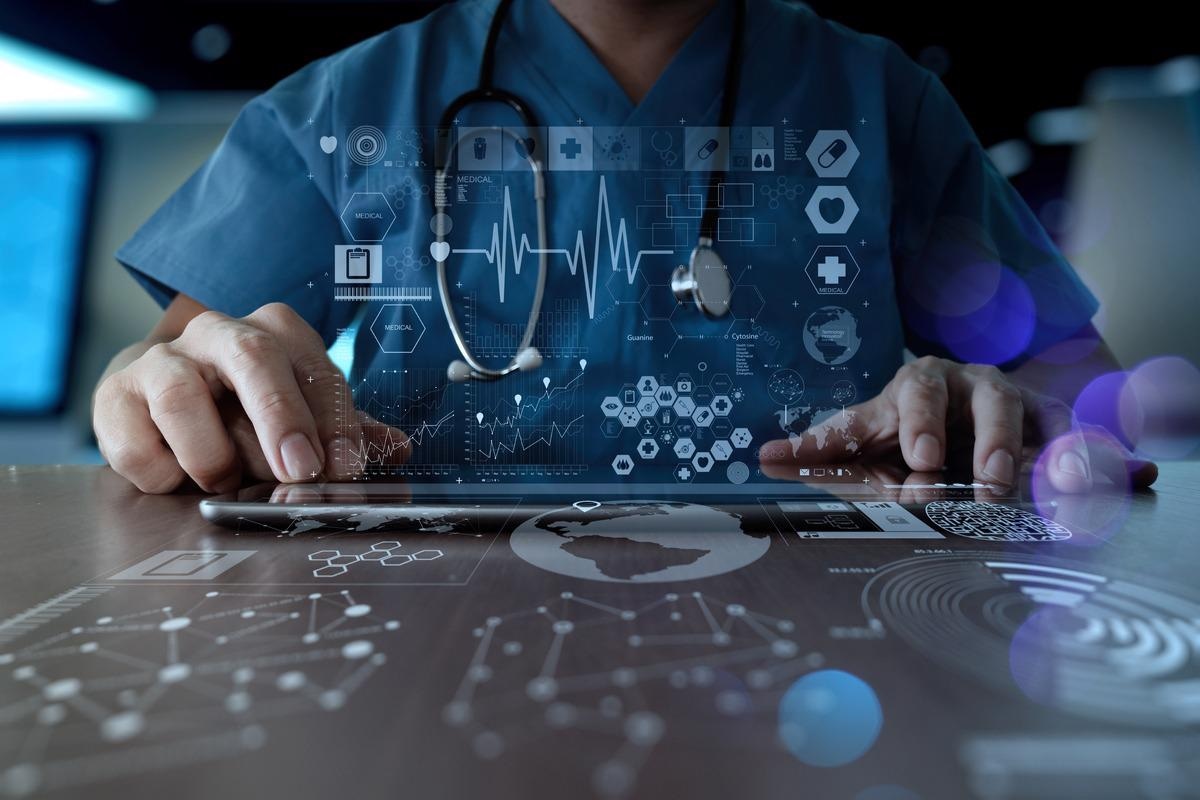
The world of medicine is on the brink of a transformative revolution
As we advance further into the 21st century, medical technology is poised to redefine the way we diagnose, treat, and prevent diseases
From breakthroughs in AI and robotics to the convergence of biotechnology and data science, this article explores the fascinating landscape of future medical technologies and innovations
Artificial Intelligence and Machine Learning
One of the most promising areas of development in healthcare is the integration of artificial intelligence (AI) and machine learning MI
These technologies are set to revolutionize medical diagnostics, making them faster and more accurate than ever before AI-powered algorithms can analyze vast datasets and identify patterns that may escape human detection This capability is particularly valuable in the early detection of diseases like cancer, where early intervention is crucial
In radiology, AI has the potential to enhance the interpretation of medical images such as X-rays, MRIs, and CT scans. AI algorithms can quickly identify anomalies, reducing the risk of misdiagnosis and improving patient outcomes Moreover, AI-powered chatbots and virtual assistants are becoming valuable tools for patient engagement and education
Telemedicine and Remote Monitoring
The COVID-19 pandemic accelerated the adoption of telemedicine, and this trend is here to stay
Remote consultations and virtual healthcare services are becoming an integral part of modern medicine Patients can now access medical advice and treatment without the need for physical visits to healthcare facilities, increasing accessibility and convenience
Furthermore, wearable devices and remote monitoring technologies are transforming how we manage chronic conditions
These devices continuously collect patient data, such as heart rate, blood pressure, and glucose levels, and transmit it to healthcare providers in real-time
This allows for proactive intervention, reducing hospitalizations and improving the overall quality of care
Genomic Medicine
The field of genomics is rapidly advancing, and it holds the key to personalized medicine. Genomic sequencing technologies have become more affordable and accessible, enabling clinicians to analyze a patient's DNA to identify genetic mutations and susceptibilities to diseases
This information can guide treatment decisions, ensuring that therapies are tailored to an individual's unique genetic makeup
In the future, we may see gene editing techniques like CRISPR-Cas9 being used to correct genetic defects, potentially curing previously untreatable genetic diseases Additionally, genomic medicine will play a pivotal role in cancer treatment, helping oncologists select the most effective therapies based on a patient's genetic profile
Robotics in Surgery
Robotic-assisted surgery is another area of rapid advancement in medical technology. Robots equipped with precise instruments and guided by skilled surgeons can perform complex procedures with greater precision and less invasiveness
This minimizes trauma to patients, reduces recovery times, and enhances surgical outcomes
From prostate surgery to cardiac procedures, robots are becoming indispensable tools in the operating room
As robotic technology continues to evolve, we can expect even more sophisticated surgical techniques and increased access to specialized care in remote areas through teleoperated surgeries
3D Printing in Healthcare
3D printing has already made significant inroads in the healthcare industry. Custom-made prosthetics, implants, and even entire organs are being created using this technology For example, 3D-printed prosthetic limbs are tailored to fit an individual's unique anatomy, offering improved comfort and functionality
Bioprinting, a subset of 3D printing, holds the promise of revolutionizing organ transplantation. Researchers are working on printing functional human organs, potentially eliminating organ shortages and the need for immunosuppressive drugs
Nanomedicine
Nanotechnology is opening up new possibilities in the diagnosis and treatment of diseases
Nanoparticles can be designed to target specific cells or tissues, delivering medications with unprecedented precision
This approach minimizes side effects and enhances the effectiveness of treatments
In cancer therapy, for instance, nanoparticles can be loaded with chemotherapy drugs and guided directly to tumor cells, sparing healthy tissue. Furthermore, nanosensors can continuously monitor physiological parameters and provide real-time feedback to both patients and healthcare providers
Immunotherapy and Vaccines
The field of immunotherapy is revolutionizing cancer treatment This approach harnesses the body's immune system to recognize and destroy cancer cells Immunotherapies like checkpoint inhibitors and CAR-T cell therapies have shown remarkable success in treating various cancers
The development of mRNA vaccine technology, exemplified by the rapid creation of COVID-19 vaccines, has opened the door to a new era of vaccine development
This technology can be applied to rapidly create vaccines for other infectious diseases and even cancer
Conclusion
The future of medicine is a landscape of limitless possibilities, driven by technological innovations that promise to reshape healthcare as we know it
From the power of artificial intelligence and genomics to the precision of robotics and 3D printing, these advancements are not only improving patient outcomes but also increasing access to quality care worldwide
About our app
UpToDate app is a medical reference and clinical decision support tool commonly used by healthcare professionals. It provides access to a vast database of medical information, including clinical guidelines, drug information, and disease references, to aid in making informed medical decisions
Users can search for medical topics, review the latest research, and stay updated on medical developments
Here are some more details about the “UpToDate” app
Medical Information: UpToDate provides access to a comprehensive library of medical information that covers a wide range of medical conditions, diseases, procedures, and drug information. It’s a valuable resource for healthcare professionals to stay informed about the latest advancements in medicine
Evidence-Based: The information in UpToDate is evidence-based and regularly updated by a team of medical experts. This ensures that the content is reliable and reflects the most current medical knowledge
Clinical Decision Support
Healthcare professionals use UpToDate as a clinical decision support tool. They can look up information on diagnoses, treatment options, and patient management to make well-informed decisions in real-time
Download link click here
The Future of Medicine: A Glimpse into Innovative Medical Technologies
![The Future of Medicine: A Glimpse into Innovative Medical Technologies]() Reviewed by Doctor
on
October 10, 2023
Rating:
Reviewed by Doctor
on
October 10, 2023
Rating:

No comments: